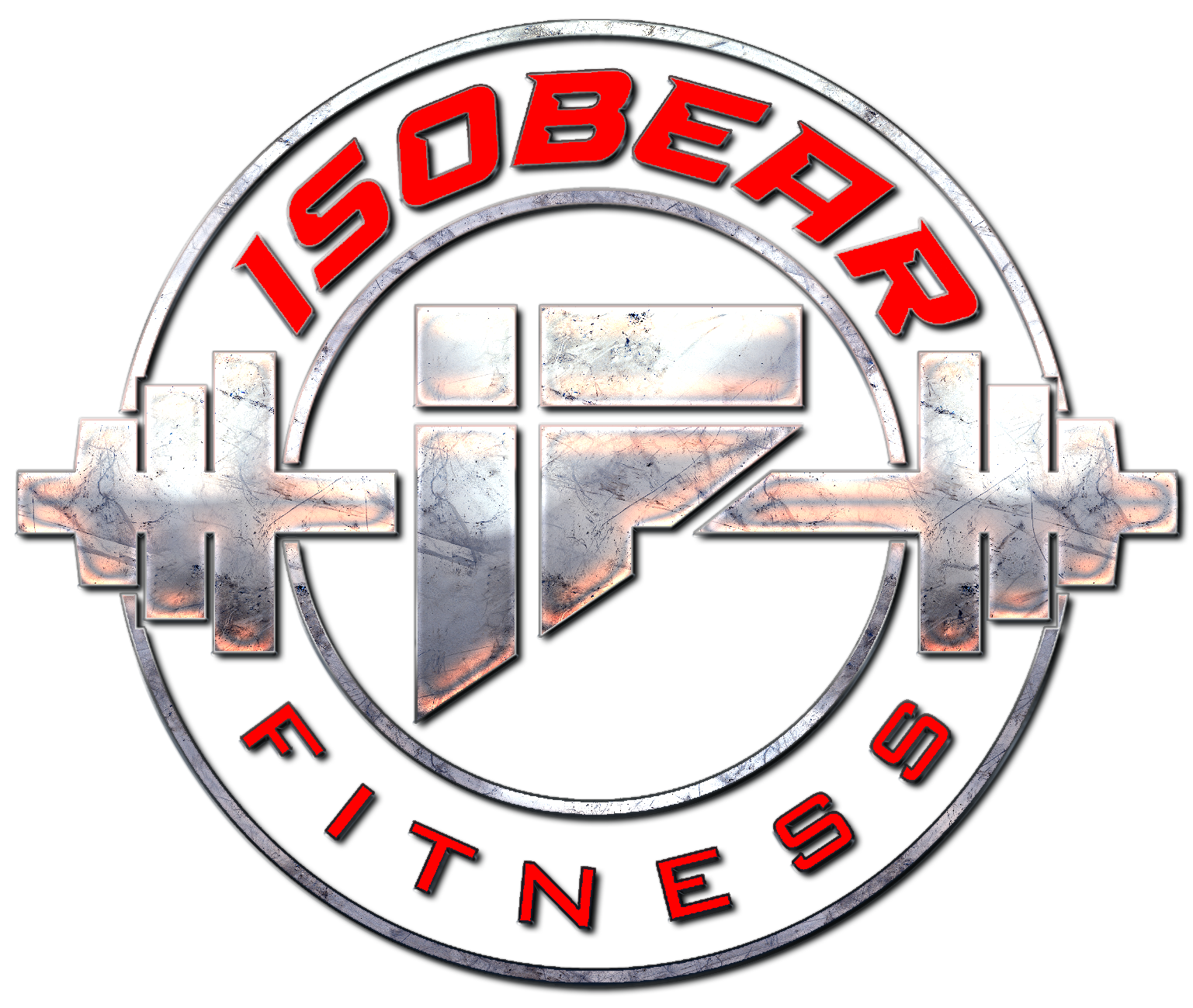Exercise has long been known to benefit your health, but did you know it can be even more beneficial when combined with a healthy lifestyle? The main factor to consider when it comes to exercise and its effectiveness is the effects of alcohol consumption on it. Unfortunately, consuming alcohol can hurt your exercise recovery.
Alcohol can lead to dehydration, which can lead to reduced muscle recovery and poor performance. Dehydration can also cause fatigue and muscle cramps, making it difficult to get back into the swing of exercising. In addition, alcohol can interfere with your body’s ability to process carbohydrates, which are crucial to muscle recovery. As a result, you may find your exercise recovery is not as effective as it could be.
Overview of Alcohol and Exercise
Alcohol consumption can harm exercise performance, muscle recovery, and sleep. The main effects of alcohol on exercise performance are a decrease in aerobic and anaerobic performance and a decreased ability to focus and concentrate. Alcohol can also hurt muscle recovery, leading to delayed recovery times and an increased risk of injury. Finally, alcohol consumption can disrupt sleep, leading to feelings of fatigue and decreased performance the following day. It is important to remember that these effects can vary from person to person. To ensure optimal exercise performance, it is best to avoid alcohol consumption before and after exercise.
Effects of Alcohol on Exercise Performance
While drinking alcohol can lead to a good time with friends and family, it can also harm your physical health and exercise performance. The impact of alcohol on physical performance is something that should not be taken lightly. In this section, we’ll discuss the effects of alcohol on exercise performance.
Alcohol can interfere with the body’s ability to process glucose, leading to increased fatigue and decreased exercise performance. Additionally, it can negatively affect muscle strength, power, and endurance. Research has found that consuming alcohol before exercise can lead to a decrease in performance of up to 25% for aerobic activities and up to 20% for anaerobic conditioning.
Alcohol can also inhibit the body’s ability to repair and regenerate muscle fibers. Without proper muscle repair, athletes risk increased fatigue, decreased muscle strength, and slower recovery from exercise sessions. Furthermore, alcohol can disrupt standard sleeping patterns, leading to less restful sleep.
The effects of alcohol on exercise performance are significant and should not be taken lightly. To maximize exercise performance and muscle recovery, it is important to limit alcohol consumption and drink in moderation. By doing so, athletes can ensure that their physical performance is not affected by their drinking habits.
Impact of Alcohol on Muscle Recovery
Undoubtedly, exercise has numerous benefits, both physical and psychological. However, when combined with alcohol, exercising can become a risk to your health and your progress. This section will explore the impact of alcohol on muscle recovery.
Alcohol causes the body to become dehydrated, slowing the recovery process. It can also interfere with the body’s ability to absorb and utilize certain nutrients, such as carbohydrates, proteins, and vitamins. This can lead to a decrease in muscle repair and growth and an increase in muscle fatigue.
The effects of dehydration can also lead to decreased energy levels and increased muscle soreness. Additionally, alcohol can reduce the body’s natural production of testosterone, a hormone responsible for muscle development. As a result, muscle recovery is slower and less effective.
Alcohol can also interfere with the body’s ability to produce growth hormones, which are essential for muscle growth. When these hormones are reduced, muscle recovery is hindered, and recovery times are increased. Furthermore, alcohol can disrupt the body’s natural sleep cycle, leading to poor-quality sleep necessary for muscle regeneration and repair.
Effects of Alcohol on Sleep
It’s no secret that alcohol can profoundly affect our bodies. From headaches to impaired judgment, it’s well known that drinking can have both short-term and long-term impacts on our health. But what about its effect on sleep? Let’s take a closer look at the impact of alcohol on rest.
Alcohol Affects Sleep Quality
Alcohol can have an immediate and significant impact on sleep. It can make it easier to fall asleep, but it significantly reduces sleep quality. This is because, while it can help us fall asleep, it suppresses our ability to reach the deeper stages of sleep. This can leave us feeling more tired and less rested than if we had slept without alcohol.
Alcohol Can Disrupt Our Circadian Rhythm
Alcohol can also disrupt our natural circadian rhythm, or internal body clock. This can be especially problematic for people struggling with sleep disorders like insomnia or delayed sleep phase syndrome. When our circadian rhythm is disrupted, falling and staying asleep can be harder, leading to poor quality sleep, fatigue, and other issues.
Impaired Muscle Growth
When it comes to impaired muscle growth, decreased protein synthesis, reduced post-workout muscle soreness, and slower recovery times are all inevitable consequences. Muscle cells cannot repair themselves without adequate protein synthesis, leading to decreased muscle growth. Additionally, soreness after workouts is a natural response to muscle damage. With decreased protein synthesis, this response is weakened, resulting in reduced muscle soreness. Finally, slower recovery times are also connected to impaired protein synthesis, as muscles need regenerative proteins. The bottom line is that impaired muscle growth can have serious negative repercussions if left unaddressed.
Decreased Protein Synthesis
Yet, there is an even more significant consequence when it comes to mixing alcohol and exercise. Studies have found that when alcohol is consumed before or after a workout, protein synthesis in the muscle cells is significantly reduced. This decrease in protein synthesis is a significant setback to any muscle-building progress, as protein synthesis is key in the muscle growth process. Decreased protein synthesis is the primary factor in impaired muscle growth, as it is the body’s way of repairing and building new muscle fibers. By hindering this process, alcohol essentially stunts muscle growth.
The reduced protein synthesis can be seen in both endurance and strength-training athletes. In strength training, decreased protein synthesis can lead to muscle loss, as the body cannot rebuild any muscle broken down during the workout. Endurance athletes may experience a decrease in their performance as muscle fatigue can set in more quickly due to reduced protein synthesis.
It is important to note that these effects can still be seen in some cases, even when alcohol consumption is moderate. Alcohol should be avoided before and after exercise, as it can cause a serious setback in muscle-building progress.
Reduced Post-Workout Muscle Soreness
The potential effects of alcohol consumption on exercise performance have been widely studied, but there is also evidence that it can harm recovery and muscle growth. Without a doubt, drinking alcohol after a workout can lead to reduced post-workout muscle soreness.
Alcohol has several direct effects on the body that can reduce the rate of muscle growth. For example, alcohol inhibits protein synthesis in the body. Protein synthesis is a process that is essential for cell growth and repair, which is especially important for muscle recovery and growth after a workout. When alcohol is consumed, the body’s ability to synthesize proteins is significantly reduced.
Alcohol also inhibits the body’s ability to produce creatine kinase, an enzyme involved in muscle tissue repair and growth. When creatine kinase levels are low, the body is unable to repair and rebuild muscle tissue effectively. This could lead to slower recovery after a workout, as the body cannot repair itself quickly. Additionally, alcohol can also decrease the body’s ability to absorb essential vitamins and minerals, which are necessary for muscle growth and recovery.
The effects of alcohol on muscle growth and recovery can be even more severe when consumed in excess.
Slower Recovery Times
Having discussed the effects of alcohol on muscle growth, let’s now consider the impact of alcohol on recovery times. Slower recovery times are one of the most significant consequences of drinking alcohol after exercise. Although the body may feel rested after a night of drinking, the truth is that it hasn’t had time to repair itself fully.
Alcohol disrupts the body’s natural ability to heal and regenerate after exercise, leading to slower recovery times. It does this by increasing cortisol levels, which are responsible for inflammation. An increase in cortisol levels is linked to a decrease in protein synthesis, meaning that the body cannot use the nutrients from food to repair its muscles as quickly as it usually would. This results in a longer recovery time.
Alcohol also disrupts the body’s ability to balance electrolytes and hydration levels, essential for muscle growth and repair. This can lead to dehydration, which further contributes to slower recovery times. Alcohol has been shown to reduce the body’s natural production of growth hormone, causing an imbalance in its hormone levels and making it harder for the body to recover from exercise.
Finally, alcohol has been shown to affect the body’s ability to sleep.
Slower Recovery Time
Slower recovery times have many negative consequences, including decreased endurance, muscle weakness, and an increased risk of injury. It’s essential to prevent these issues by stretching before and after any physical activity and cooling down properly. Doing so will help to maintain muscle strength and endurance and reduce the risk of injury. Additionally, eating a balanced diet rich in micronutrients is essential for ensuring the body has the energy and power to recover quickly. Proper hydration is also essential for facilitating recovery and promoting muscle growth.
Decreased Endurance
The consequences of impaired muscle growth can be wide-reaching, and one of the most significant is decreased endurance. Without adequate muscle growth, our body can’t generate enough strength to sustain physical activity for extended periods, meaning we’ll tire more easily and become unable to push ourselves. This can be especially problematic for athletes, as decreased endurance can be the difference between winning and losing a competition or even just achieving a personal best.
Not only does this decreased endurance make it more difficult to perform physical tasks, but it can also lead to exhaustion and fatigue, harming our mental and physical well-being. Our bodies need an adequate level of endurance to handle the demands of our lifestyles, whether running around after children, participating in a sport, or just taking a leisurely walk.
Additionally, decreased endurance can mean that we’re more prone to injuries. Without the strength and agility that come with sufficient muscle growth, our bodies can’t take the strain of physical activity, leaving us more susceptible to sprains, strains, and other injuries. Furthermore, if we’re constantly tired due to decreased endurance, we’re more likely to be complacent and take risks, which can increase the risk of injury.
Muscle Weakness
Muscle weakness is a serious issue affecting more people than you think. Muscles are essential for everyday functions such as walking, running, and standing. Without strong muscles, performing these activities with ease can be challenging. Weakness of the muscles can also lead to fatigue and difficulty staying active.
More importantly, muscle weakness can also lead to a higher risk of injury. As muscles become weaker, they become more prone to tearing and damage. This is especially true when doing physical activities that require a lot of energy and strength. Without strong muscles, performing activities safely and efficiently can be challenging.
The best way to prevent muscle weakness is to ensure you engage in regular physical activity. Exercise is key to maintaining muscle strength and preventing weakness. Strength training exercises and stretching can help improve muscle strength and reduce the risk of injury.
Injury Risk
After discussing the effects of impaired muscle growth on decreased endurance and muscle weakness, it’s essential to talk about the injury risk associated with these issues. Injury risk is one of the biggest dangers of not caring for your body in the ways it needs.
When muscles are not working at total capacity, your body is more susceptible to strain, fatigue, and tears. Additionally, when you don’t have the endurance to complete tasks, your body is more likely to be pushed beyond its limits. This is a recipe for disaster.
The best way to prevent injuries from happening is to make sure your muscles are in top condition. This means regular exercise and stretching, getting adequate amounts of sleep, and eating a healthy diet. Staying hydrated is also essential, as it helps the muscles work at their highest level.
If you don’t take the necessary steps to maintain strong, healthy muscles, you could be at a higher risk for serious injuries. This could mean missing out on activities you enjoy or taking time off work due to an injury.
The bottom line is taking care of your muscles is key to avoiding injuries.
Effects of Alcohol on Protein Synthesis
Alcohol consumption has a profound effect on the body, especially on protein synthesis. It affects muscle protein synthesis, hormone levels, and tissue damage. Research has shown that alcohol consumption hurts muscle protein synthesis, which can harm muscle growth and repair. Additionally, alcohol consumption can decrease the production of hormones such as testosterone and growth hormone, which can further reduce muscle growth and repair. Finally, alcohol consumption has been linked to tissue damage, as it can cause oxidative stress and inflammation, leading to damaged cells and tissue.
Effects of Alcohol on Muscle Protein Synthesis
The effects of alcohol on muscle protein synthesis are alarming. It has been found that alcohol consumption leads to a reduction in the rate of protein synthesis in muscle tissue. This can significantly impact an individual’s ability to build muscle and recover from exercise.
In addition to inhibiting muscle protein synthesis, alcohol has been found to hurt hormone levels. Alcohol consumption has been linked to increased levels of cortisol, a hormone associated with increased stress levels and decreased protein synthesis. High cortisol levels can lead to reduced muscle growth and increased fat storage, making it even harder for individuals to build muscle and recover from exercise.
The negative effects of alcohol on muscle protein synthesis and hormone levels are compounded by the fact that alcohol can also cause tissue damage. Alcohol consumption can lead to increased inflammation and oxidative stress, damaging muscle tissue and making it harder for the body to repair and recover from exercise. In addition, alcohol can interfere with the absorption of essential nutrients, further hindering muscle growth and recovery.
The evidence is clear: alcohol consumption can significantly negatively impact muscle protein synthesis and the body’s ability to build muscle and recover from exercise.
Effect of Alcohol on Hormone Levels
The consequences of alcohol consumption go far beyond the damage it can do to our livers. It can also have a significant impact on our hormones. Alcohol can directly interfere with the production and release of hormones. From testosterone to growth hormone, alcohol can disrupt the body’s average balance of hormones, leading to a cascade of adverse health consequences.
When consumed, alcohol is broken down by the body into a compound called acetaldehyde. While acetaldehyde can be further broken down and eliminated from the body, it can also bind to hormones and interfere with their production and release. In particular, alcohol has been found to inhibit the release of testosterone, a hormone essential for muscle growth, strength, and energy.
Testosterone also plays a major role in regulating energy levels, metabolic rate, and fat storage. Decreased testosterone levels due to alcohol can lead to decreased strength and muscle mass, increased fat storage, fatigue, and difficulty sleeping.
Additionally, alcohol consumption can reduce levels of human growth hormone (HGH) in the body. HGH is essential for tissue repair and regeneration. Without enough HGH, the body can’t properly repair and rebuild itself, leading to tissue damage.
Alcohol’s Role in Tissue Damage
The long-term effects of alcohol consumption on the body are undeniable, and most of us are aware of the risk of liver disease, cancer, and other illnesses associated with heavy drinking. But there is also a lesser known, yet equally devastating, consequence of alcohol consumption – tissue damage.
Alcohol is an immunosuppressant, meaning it can decrease the body’s ability to fight off infection or heal from injury. This can be especially problematic regarding muscle tissue, as alcohol can reduce the body’s ability to repair and strengthen muscle fibers. The result is slower recovery time, which can lead to muscle atrophy and an overall decrease in physical performance.
Additionally, alcohol has been found to increase oxidative stress, or the body’s production of “free radicals” that cause damage to cells. These free radicals can damage the muscles and surrounding tissue, resulting in inflammation and pain. This can lead to further complications, such as difficulty performing physical activities and long-term muscle injury.
Finally, alcohol can interfere with hormone levels in the body, leading to tissue damage. For example, alcohol consumption can decrease testosterone levels, an essential hormone in muscle growth and repair.
Strategies to Mitigate the Negative Effects
Hydration, Nutritional, and Stress Management Strategies are essential to mitigate the adverse effects of an unhealthy lifestyle.
Hydration Strategies are essential as they provide the body with the fluids it needs to regulate its temperature, cushion its joints, and eliminate waste. Proper hydration can also improve concentration, reduce fatigue, and enhance athletic performance.
Nutritional Strategies involve eating a balanced diet with plenty of fruits, vegetables, and whole grains while limiting processed and sugary foods. Eating various nutritious foods can help reduce the risk of chronic illnesses such as diabetes and heart disease.
Hydration Strategies
Having discussed the detrimental effects of alcohol on the body’s ability to synthesize proteins, it is important to consider strategies to mitigate the adverse effects. One such method is to implement a plan of hydration.
The body uses water to help regulate many processes, and alcohol consumption can quickly deplete the body’s hydration levels. To help counteract this, individuals should drink water before, during, and after consuming alcohol. This will not only help to keep the body better hydrated but can also help to reduce the amount of alcohol consumed.
In addition, people should be mindful of consuming caffeinated beverages such as coffee and energy drinks. Caffeine is a diuretic, meaning it causes the body to excrete more water than it otherwise would. So, while it might seem like a good idea to mix energy drinks with alcohol to stay awake, it is only making matters worse.
It is also essential to consider the drinks an individual consumes. Alcoholic beverages come with varying hydration levels, with some containing more water than others. For example, beer is generally more hydrating than wine, and hard ciders and cocktails can be even more dehydrating.
Nutritional Strategies
The adverse effects of alcohol consumption on protein synthesis can be challenging to navigate, but nutritional strategies can help mitigate them. While hydration and stress management are both essential elements of a healthy lifestyle, the right dietary choices can go a long way toward counteracting the damaging effects of alcohol.
Most likely, the consumption of alcohol has caused a nutrient deficiency in the body, leading to numerous physiological problems. To combat this, it is essential to replenish the body with the correct nutrients. Vitamins, minerals, and antioxidants are all crucial components of a healthy diet and can help offset the damage caused by alcohol consumption. Eating a balanced diet rich in these elements can help reduce the negative impact of alcohol on protein synthesis.
In addition to replenishing the body with essential nutrients, it is also important to limit the amount of processed foods and sugar in the diet. Processed foods are low in nutritional value and can lead to further nutrient deficiencies, making it difficult to recover from the damage caused by alcohol. Cutting out processed foods and sugary snacks can help reduce the effects of alcohol on protein synthesis and help the body heal.
Finally, it is essential to maintain a healthy protein level in the diet.
Stress Management Strategies
The effects of alcohol on protein synthesis can be damaging, but there are ways to mitigate the adverse effects. Stress management strategies are essential to any approach to reducing alcohol-related damage. After all, managing stress can help protect our bodies from various health issues.
One way to reduce stress is to practice mindfulness techniques, such as deep breathing, yoga, and meditation. These activities can help to reduce stress levels, and they can also increase our mental clarity and focus. Additionally, these activities can be done anywhere, making them an accessible and convenient way to reduce stress.
Exercise is another powerful way to reduce stress. It can help reduce anxiety, improve sleep quality, and boost overall mood. Exercise also releases endorphins, a type of hormone that can help reduce stress. Furthermore, exercise can also improve overall physical health, which can help to protect the body from the adverse effects of alcohol consumption.
By actively managing stress, individuals can take a proactive approach to protecting their health. Stress management strategies can help to reduce the effects of alcohol on protein synthesis and improve overall physical and mental well-being. All in all, stress management is an essential part of any approach to reducing the adverse effects of alcohol consumption.
Conclusion
Alcohol has been found to have adverse effects on exercise recovery. It impairs muscle growth, slows recovery time, and affects protein synthesis. To ensure that your body can adequately recover after a workout, it is essential to avoid consuming alcohol. If you choose to drink, be sure to do it in moderation and ensure that it does not interfere with your recovery. By making wise decisions about your alcohol consumption, you can optimize your recovery and your fitness goals. *Take control of your health and make sure that you are taking the necessary steps to ensure that you are recovering properly.

Plant Versus Animal Protein
Protein is an essential macronutrient for the human body; it helps in building and repairing muscles, tissues, and organs. We obtain proteins from a variety

Foods to Help Prevent Clogged Arteries
It is no secret that our diets significantly affect our health. Eating a balanced diet is essential for reducing the risk of developing severe health
follow
Error: No feed with the ID 2 found.
Please go to the Instagram Feed settings page to create a feed.

